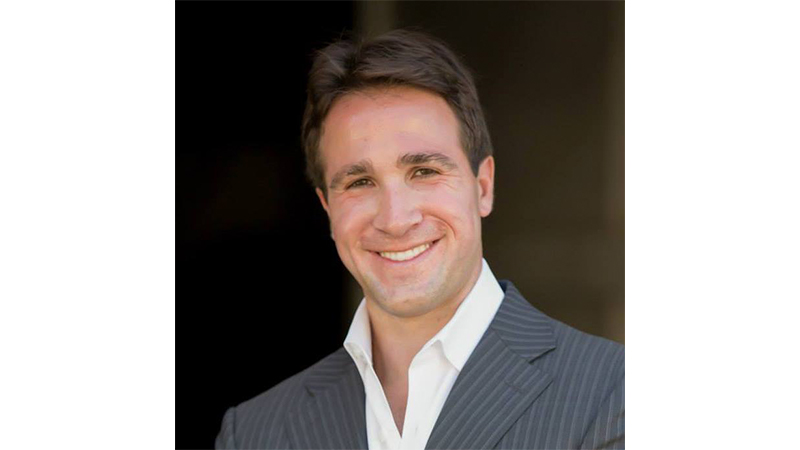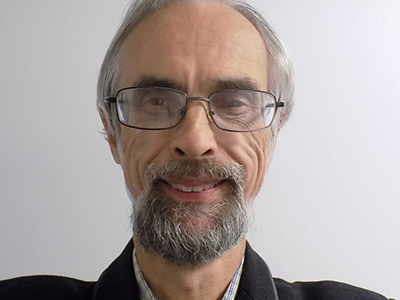The Veloz Group's Adam Mendler Shows the Way to Success for Other Entrepreneurs
Adam Mendler knew becoming an entrepreneur was not going to be easy. A mentor had schooled him on why new ventures are always bigger challenges than anyone involved can imagine. But at 28, having served his time in major corporations, he and his brother, Jordan, were eager to jump in and had some good ideas. Having achieved success with several, nine years later, he has the wisdom from the scars and scares that he shares with wannabe new business owners and those who want to move their startups from struggling to thriving.

"In contrast to the route many take, we decided to bootstrap because our ideas far were conducive than most startups," said Mendler. "In the early days, however, we tried to do way too many things at once and burned through our savings. We learned to change course and focus on the business ideas closest to monetization. We learned a lot from our mistakes."
Their holding company for entrepreneurial efforts is The Veloz Group, named after the street in Tarzana, California, where they grew up, which currently has three components:
Veloz Solutions is their tech consultancy through which they work on projects for a wide variety of small-to-medium companies and nonprofits. "We deploy best-in-class software developers and technologists to build solutions to challenges with revenue-driving opportunities," Mendler said. "We view ourselves as high-level partners for our clients to create something new to add value to their strategic vision."
Over the years, they created virtual reality experiences of Tel Aviv and Jerusalem for the nonprofit Virtually Israel, both to educate students and to attract tourists, showing the cities as dynamic and cultured places. "VR can serve as a tool to help places that may be misunderstood show what they're really like to potential visitors, to potential business partners, and to the public," he noted. "It can give you exposure to a wider audience and allow you to sell yourself in a far more streamlined way."
Most of the new clients now come through referral, but Mendler is a very busy networker. "I love building new connections. Most people hate networking events and the thought of having to network, but I enjoy meeting new people and developing new relationships in all kinds of settings."
Beverly Hills Chairs is the nation's leading “etailer” of refurbished, high-end office chairs, including the most popular of all time, the Herman Miller Aeron. Made of 94% recycled materials, the fabric of the backrest and suspended seat are extraordinarily comfortable and ergonomic (it's also in the permanent collection at New York City's Museum of Modern Art as an "outstanding example of industrial design"). They also sell many other brand-name chairs and sit-and-stand desks (everyone except Mendler uses the latter since he doesn't spend much time at any desk).
They deploy a variety of marketing strategies but enjoy strong word of mouth from existing customers. "We've become the go-to guys for small-to-medium businesses across the country and, since the pandemic, for individuals shopping for their home offices, who want the best chairs on the market but don't want to pay full retail," he explained.
The brothers' most unusual company is Custom Tobacco, a unique platform that allows anyone to completely create their own private-label cigars, including the shape, size, the type of premium tobacco (from Nicaragua or the Dominican Republic), flavor, filler, wrapper, and band. "This is especially popular with individual gift-givers [who want to give something that is one-of-a-kind] and event planners," Mendler said.
Sharing the Lessons of Wise Leaders
Mendler's mom was a math teacher, and his dad still practices tax law.
"My parents were very significant influences in every aspect of my life," he said. "Their value system, morality, and generosity — they gave me a real playbook on how to live."
As far back as he can remember, Mendler was fascinated by baseball and remains a passionate fan of the Los Angeles Angels. His dream was to run a Major League team, but when asked why he didn't dream of playing professional baseball, he recalled, "I realized early-on that wasn't going to happen, since I was pretty good for a guy playing on a bad Jewish high school team, but as someone who understood the game, I realized I wasn't very good relative to MLB players" He interned in sports management, but shifted focus on his professional goals by the time he was in business school.
He graduated Phi Beta Kappa from the University of Southern California with a BS in business administration and a BA in political science in 2005 (he remains passionate about politics). In between that and earning his MBA at UCLA in 2010, he worked at D.E. Shaw & Co., then the largest hedge fund in the world, and in the strategic planning groups at Universal Pictures and the William Morris Endeavour agency. After graduating from UCLA, he worked at the financial services giant Credit Suisse.
By 2012, he and Jordan felt that it was now or never to take the entrepreneurial leap. He knew a lot about good and bad leadership models from his studies, jobs, and reading. His favorite book on leadership remains “The Best and the Brightest,” David Halberstam's 1972 account of how the foreign policy of Presidents John F. Kennedy and Lyndon B. Johnson failed so badly during the Vietnam War. Halberstam noted that it was designed by brilliant academic "whiz kids," who did not draw on the experience of State Department veterans or leaders on the front lines, so their ideas often lacked common sense.
There is a parallel with companies who may do well from a revenue and profit perspective (particularly when they fully exploit the tax codes), but their leaders are far removed from customers and employees, resulting in poor reviews.
"You can have really smart people who are competent at getting tasks done at an entry and mid-level, but they get promoted without having the skills to manage people, so there's a major deficit in Corporate America in good leadership," said Mendler. "Anyone can become a better leader, which is why I'm so focused on developing great leaders."
He has interviewed over 500 high-achievers for all his platforms, including presentations at conferences and corporate meetings, articles for media such as Forbes and Inc., and on his podcast "Thirty Minute Mentors.” The sheer variety of those he has talked with is impressive, including former NATO commander Admiral James Stavridis, NBA Hall-of-Famer David Robinson, actor Rob Lowe, former Dunkin' Donuts CEO Robert Rosenberg, bestselling author of books on integrative medicine Suzanne Somers, and former Campbell Soup Co. CEO Doug Conant.
"I often ask the people I interview how important ethics are to success, and all of them give it a 10 and not just because they are giving this lip service," Mendler reported. "Without a strong moral compass, you will struggle to inspire trust with your team."
One of the most memorable comments on a podcast came from Keith Melnick, co-founder of the online travel agency Kayak.com. He said, "The best employees are always afraid they are about to be fired, [so do an extraordinary job to avoid that outcome], while the worst ones are always shocked when you let them go." Mendler says that has been his experience, as well.
Some of the lessons he passed on from his own experience and the leaders he has interviewed:
- Get comfortable with making decisions when the right one isn't clear. Situations are often so complex that a good solution is not obvious, even though the case studies in business school might have made problems seem more black-and-white. Be prepared for a lot of ambiguity and the need to change course.
- It can be better to be wrong than to insist you're right. You may not be truly at fault, but if a customer is dissatisfied and you don't take responsibility, you will probably lose them. A happy customer will be loyal and refer friends.
- Learn from failure. Everyone makes mistakes, and they are opportunities to reflect deeply on what went wrong. If you don't learn something important from each experience, you will continue to fail to avoid problems or find out how to fix them.
- Take care of your health, including eating nutritious foods, having a rigorous workout program, and leading an active life. Too often, leaders think they're too busy to cook healthy meals or go to the gym, but if you want the energy to lead and avoid having serious health setbacks, you have to set aside the time now.
- Spend your time on what you are passionate about. It's easier to be a workhorse and put in long hours when you enjoy your work. And set aside time to have fun with family and friends without distractions. Mendler not only loves to watch baseball but plays backgammon and loves classic movies. As Rick Blaine in his favorite, "Casablanca," said, "We try. You succeed."
About the Author

Scott S. Smith has had over 2,000 articles and interviews published in nearly 200 media, including Los Angeles Magazine, American Airlines’ American Way, and Investor’s Business Daily. His interview subjects have included Bill Gates, Richard Branson, Meg Whitman, Reed Hastings, Howard Schultz, Larry Ellison, Kathy Ireland, and Quincy Jones.
Startup Resources
- Learn more about Startups
- Visit the TRUiC Business Name Generator
- Check out the TRUiC Logo Maker
- Read our Business Formation Services Review
- Find Startup Ideas
- Explore Business Resources
Form Your Startup
Ready to formally establish your startup? Click below to read our review of the best business formation services!
Best Business Formation Services